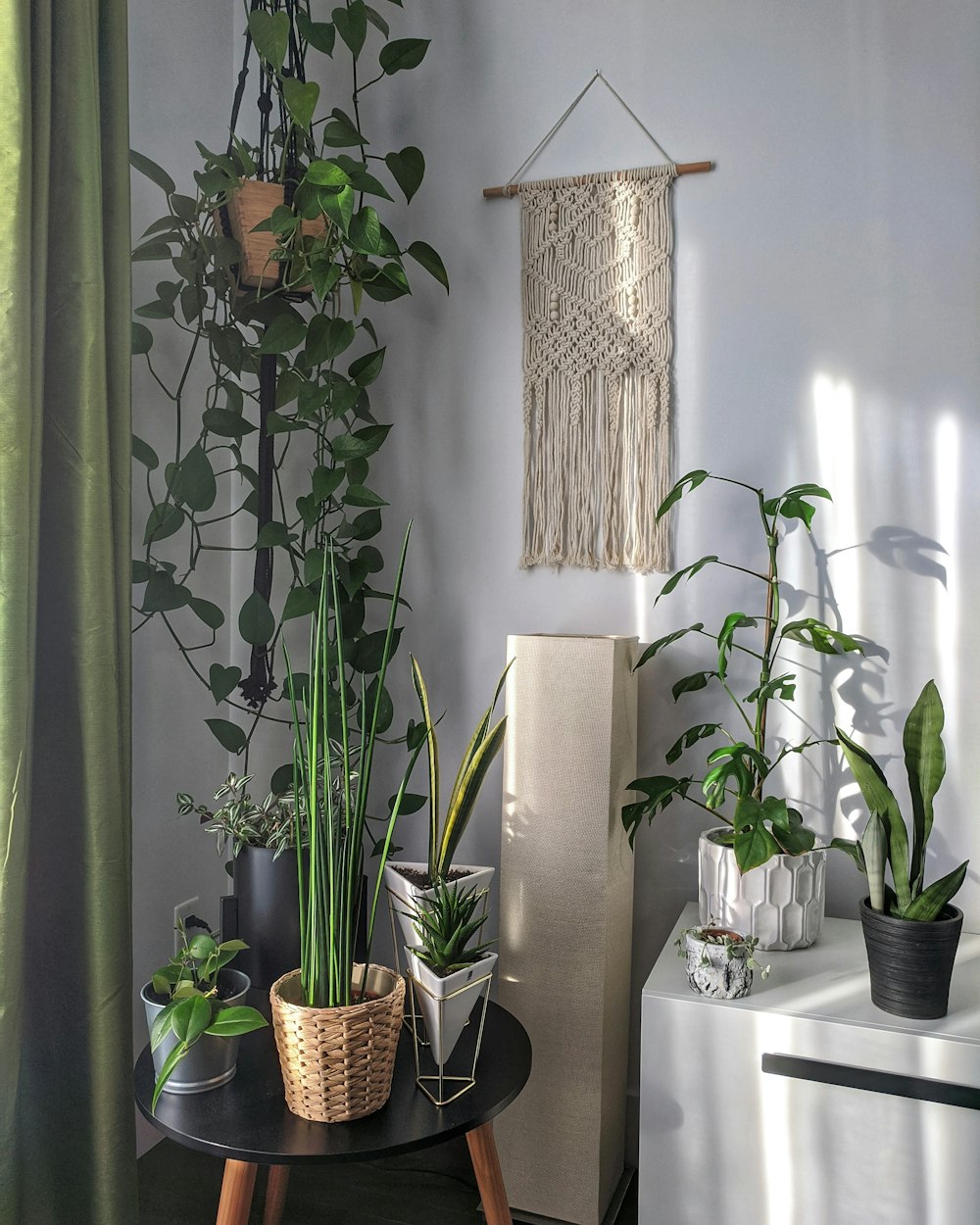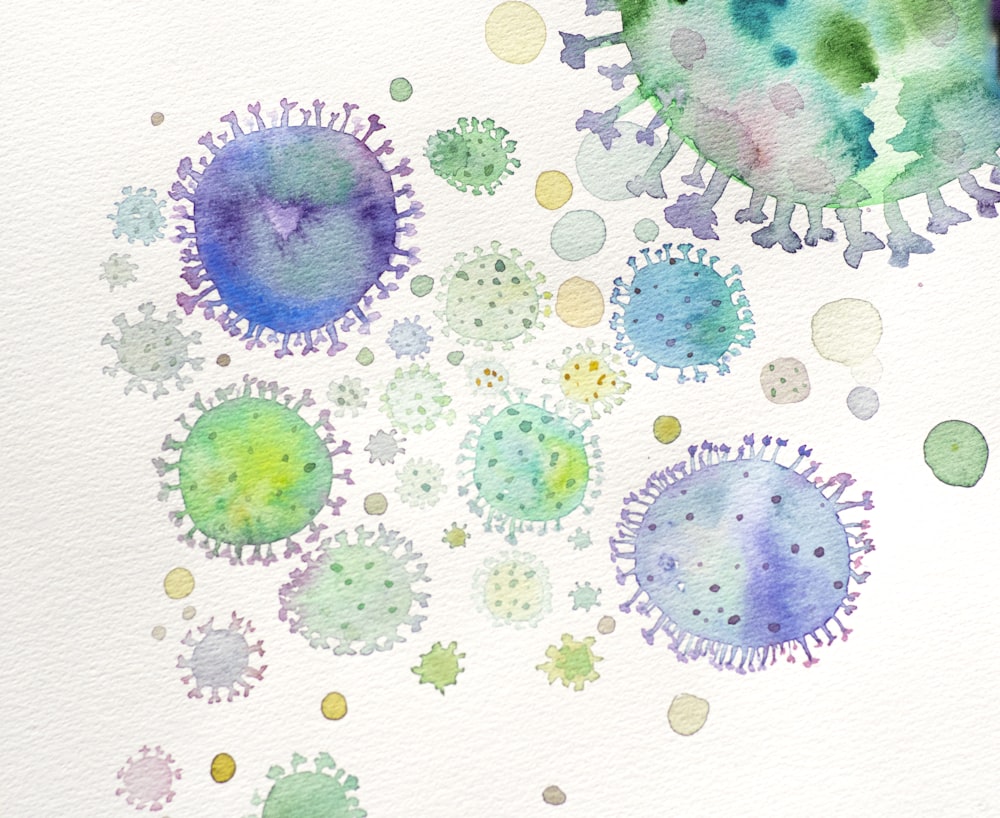Practical Tips to Fight Seasonal Allergy

Spring has come, and together with blooming trees and colorful gardens, it brings a frightening enemy: I’m talking about allergy. What is supposed to be a season of joyful walks in nature and outdoor activities can become a nightmare for those affected by some form of seasonal allergy. And they’re a lot: according to statistics, 10%-30% of the population worldwide has allergic rhinitis.
Dealing with the symptoms of allergy can be unpleasant and make your daily life hard. Even having a walk or doing physical exercise becomes difficult: you can’t stop sneezing, your eyes and skin itch, and your nose gets clogged.
Luckily, there are many remedies with which you can prevent, control, and relieve your allergy symptoms. Let’s break them down!
What is a seasonal allergy?
Seasonal allergy (also called hay fever or allergic rhinitis) occurs when your immune system is too sensitive to an outdoor allergen. Allergens are substances that trigger an inflammatory reaction in the body: when they enter your organism, your immune system overreacts, leading to the typical allergic reactions.
There are different types of allergies: you can be allergic to food, insects, mold, pets, or some materials like latex. Seasonal allergies are those related to pollens and other substances found in the air during spring.
The most common allergens include pollen from plants, trees, ragweed, cedar, and even some chemicals. Once they’re breathed in, the immune system mistakenly sees them as a danger, so it releases a molecule called histamine to attack harmful substances and expel them. But, as a side effect, histamine provokes inflammation, and so the typical allergy symptoms occur. Other triggers that can cause seasonal allergies or worsen their symptoms are insect bites and chlorine in indoor and outdoor swimming pools.
Symptoms of seasonal allergy
It’s essential to recognize a seasonal allergy when it occurs, especially in this pandemic period: symptoms of seasonal allergies can be very similar to those of a cold or even COVID-19. How can you tell whether it’s an allergy or another disease?
The most common symptoms of seasonal allergy are:
Frequent sneezing
Sneezing is a way to clean your nose and throat from irritants. When some allergen (like pollen) comes into contact with your nose, it can irritate the inner mucosa; as a consequence, you sneeze to remove such irritants from your body.
Stuffy nose
Stuffy nose (or nasal congestion) happens when your nose becomes clogged and inflamed. This condition is frequent in people with allergies and can last more than a week.
Itchy and burning eyes
If they come into contact with an allergen, the eyes can be swollen and weep. This happens as an immune response to the allergen.
Itchy throat
You can feel your throat scratchy, swollen, and hurting. Also, you might feel you need to clear your throat very often.
Postnasal drip
In general, you don’t notice the mucus produced by your nose, and you swallow it without realizing it. When the body produces more mucus than normal, it becomes thicker and moves back to the throat, causing postnasal drip. You may have excess mucus in the throat, cough, and feel like you constantly need to clear your throat.
In less frequent cases, you can experience other symptoms like headache or shortness of breath. In some cases, seasonal allergies can trigger asthma, making your breathing more difficult.
To recognize whether your symptoms are caused by an allergy or a cold, you can monitor how quickly your symptoms appear: if they come out of nowhere, most likely they’re provoked by an allergy. Also, allergy symptoms tend to last longer than those of a cold (in general, they stick until the allergen is in the air). And if the symptoms appear at a certain time every year, most likely, they’re related to an allergy.
But what if you suspect you have COVID-19? Indeed, some symptoms can overlap with those of COVID-19. However, if you’re infected with coronavirus, you usually experience other symptoms (like high temperature, loss of smell or taste, and gastrointestinal problems) that don’t appear in case of an allergy. Anyway, it’s highly recommended to consult official informative pages and do a specific test if you suspect you have COVID-19.
Practical tips to fight seasonal allergy
Living with a seasonal allergy is difficult and can make your daily life uncomfortable. Imagine you’re at work and you need to sneeze continuously, or you’re out for dinner and feel your eyes itching as crazy. All you want to do in those moments is to leave and lay down on the bed or have a cool shower. How to relieve your allergy symptoms and take control of your days?
Reduce your exposure to allergens

The first and most intuitive way to fight seasonal allergies is to avoid the irritants that trigger them. But this doesn’t mean you need to lock yourself in the house during the whole spring season. Some practical tips to effectively reduce your exposure to pollen and other allergens include:
- Check pollen forecasts to monitor the allergen levels in the air. Most of the weather forecasts often include pollen forecasts, too: be sure to check them regularly.
- Close your windows if the pollen levels are high.
- Stay indoors on windy or dry days, when the concentration of pollen in the air is higher. It would be better to go outside after rain (when the air is cleaner).
- When you come back home, remove the clothes you’ve worn out and clean them with a brush or wash them with some water.
- Wear a pollen mask. Pollen particles are pretty large (their size ranges from 10 microns up to 200 microns), and this makes them easy to capture. That’s why most of the masks are effective against pollen.
- Avoid outdoor activity when you see pollen levels are high (in general, it happens in the morning).
- Don’t hang your clothes outside because pollen can stick to some tissues (especially those of sheets and towels).
- Take a shower if you’ve been working outdoors. Cool water can help to fresh up your skin and remove allergens from the body.
Clean indoor air
You can’t eliminate all the allergens from your house, but some practical and useful tips may help to improve the quality of the air you breathe:
- During pollen season, close the windows and use air conditioning to freshen up your house.
- Use high-efficiency particulate air (HEPA) filters. You can install them in your car, in your air-conditioning system, and even in your vacuum cleaner.
- Do regular maintenance of your air conditioning systems and filters.
- Use a dehumidifier to keep indoor air dry.
- Use houseplants to clean indoor hair.
Keep your house clean
Keeping your house clean it’s an essential step to eliminate many allergy triggers; untidy and dusty rooms can worsen your allergy symptoms.
- Wash sheets, pillowcases, and blankets frequently (at least once a week).
- Vacuum the floor and the carpets regularly using a vacuum cleaner with a HEPA filter.
- Use washable curtains and wash them regularly.
- Clean all the places where pollen can collect (shelves, vents, and furniture).
- Remove all the sources that may collect dust, such as books, toys, and ornaments.
- Replace old upholstered sofa and chairs with furniture made of metal, wood, or plastic.
- Use traps for cockroaches and mice. If your house gets contaminated, consider hiring a professional exterminator.
- Keep the floor free from food crumbs.
- Throw the garbage in a bin with a proper lid and empty the trash on a daily basis.
- Clean cabinets with detergent and water.
- Clean all the surfaces (including the tops of doors and window frames) with a damp cloth.
- Whenever you clean the house from dust, remember to wear a protective mask, otherwise, your allergy can worsen.
- Prevent mold growth.
Use an over-the-counter medication
A lot of over-the-counter medications can help reduce or relieve allergy symptoms. They come as pills, liquids, nasal sprays, eyedrops. Some of them are:
- Antihistamines block histamine production. They can come as oral antihistamines, nasal sprays, or eyedrops. Oral antihistamines relieve sneezing, runny nose, and watery eyes; antihistamine nasal sprays relieve sneezing, runny nose, and postnasal drop. Side effects can include a bitter taste in the mouth. Eye drops help for itchy, red, swollen eyes. They should be kept in the refrigerator.
- Decongestants can give temporary relief from nasal and sinus congestion. As a side effect, they can increase blood pressure and cause headaches, so people with high blood pressure, cardiovascular disease, or hyperthyroidism shouldn’t use them. They can come as pills, liquids, or nasal sprays. Use nasal decongestants for a couple of days in a row, otherwise, its use can worsen symptoms and make congestion reappear or get worse.
- Corticosteroids lower the inflammation in the body and ease swelling, itching, and redness. They come as inhalers, nasal sprays, eye drops, pills, and skin creams.
- Combination medications. Sometimes, combining different medications can help you fight your seasonal allergy. For example, you can combine an antihistamine with a decongestant.
Remember that before taking any medication (also over-the-counter drugs), you should consult your doctor to choose the medication that works better for you and avoid unwanted problems. Talk to your doctor if you’re pregnant or breastfeeding, or if you are taking other medications (including supplements), or have a chronic disease.
Use a nasal rinse
Rinsing your nose is a rapid and effective home remedy to clean your nose from mucus and allergens and relieve allergy symptoms. You can either buy a kit at any pharmacy or make your nasal rinse. To do it, you need to use a neti pot or a nasal bulb. Use distilled or boiled water (the water you use must be sterile and free from bacteria and viruses). To prepare the rinsing solution:
- Mix three teaspoons of salt with one teaspoon of baking soda. The salt must be iodide-free.
- Store the mixture in a zip-top bag.
- Add one teaspoon of this mixture to one cup of distilled (or boiled) water.
- Take eight ounces of the solution.
- Lean over a sink, tilt your head, and rotate it to the left. Squeeze the solution into the right nostril. Let the saline solution flow out through the left nostril and repeat the procedure for the other side.
Be sure to wash and sterilize the material you used to be clean for the next rinse.
Clean your respiratory tract
Inhaling some water vapour is an effective way to clean your respiratory tract and make your breathing less effortful. While it doesn’t cure any disease, it will make you feel better immediately by removing the mucus from your nose and throat.
Warm-up some water (don’t let it boil), and place it in a bowl or pot. Cover your head with a towel (this is essential to trap the steam that otherwise will spread into the room and become less effective) and inhale. Do it for around 10-15 minutes. You can repeat it two or three times per day if you experience severe allergy symptoms.
Use natural remedies
Some home remedies for itchy throat or nasal congestion (like drinking hot tea and eating spicy foods or honey) can noticeably reduce your allergy symptoms. Other home remedies are drinking plenty of water to hydrate your respiratory system, using nasal rinses, and inhaling some vapors (as explained above).
There are, however, several other natural remedies that can help you lower your seasonal allergy symptoms:
Citrus fruits
Lemons, oranges, mandarins are high in vitamin C, bioflavonoids, and antioxidants. Those fruits are helpful to boost your immune system, thus preventing the symptoms of seasonal allergies. Drink orange juice or add some drops of lemon juice to your oil. You can also add lemon to a glass of water and drink it.
Butterbur extract
That’s an extract taken from the butterbur plant. Butterbur contains two chemicals (petasin and isopetasin) that reduce inflammation and spasms. It’s believed it can help reduce your hay fever symptoms. However, there’s not so much clarity about its benefits and safety.
Quercetin
That’s a nutrient found in leafy green vegetables and onions. It boosts the production and release of histamine, the molecule responsible for fighting your allergens. Quercetin appears to reduce irritation of respiratory tracts and alleviate your symptoms.
Bromelain
This nutrient is found in the core and juice of pineapples and can reduce inflammation and allergic reactions. Bromelain is also available as a food supplement. However, further research needs to be done to determine bromelain’s effectiveness in treating allergy symptoms. Some side effects may arise from the use of bromelain; some of them are increased heart rate, changes in menstruation, and stomach upset.
Probiotics.

Probiotics are“good” bacteria and yeasts that can be useful in the treatment of allergic rhinitis symptoms. Their mechanism of action in reducing allergic reactions is still a mystery. It is known that different types of bacteria have different mechanisms of action, but researchers are still trying to figure out why. Some probiotics appear to increase the body’s immune reaction to allergies, others alter the antibodies balance, while others are less effective. Regardless of their effect on allergies, taking probiotics is still one of the healthiest choices for your body, as it brings plenty of additional benefits. Some good sources of probiotics are yogurt, fermented cabbage, and kefir.
Support your immune system
As allergens act by irritating your immune system, you can fight symptoms by empowering your immune response. Adopting a healthy lifestyle is essential to support your immune system. To do so:
- have a healthy diet, rich in fruit and vegetables and low in refined sugars and processed food;
- do regular exercise: do physical activity two or three times per week, use the stairs, walk instead of taking the car;
- avoid smoking;
- limit your alcohol intake;
- minimize your stress levels;
- get regular sleep;
- try meditation;
- drink immune-boosting smoothies;
- take food supplements.
Immune Support supplement

Our Immune Support supplement is designed to strengthen and protect your immune system through a combined action of its main components. This supplement is designed for people aged over 40, and it’s packed with antioxidants and nutrients: vitamin C (made with L-Ascorbic Acid), vitamin E, and selenium. Its blend of nutrients, selected from various natural sources (shiitake mushrooms, green tea leaf, turmeric pine bark, and garlic), keeps your immune system strong, provides antioxidants, and helps your inflammatory response.
Use essential oils
Essential oils are concentrated liquids distilled from plants. Eucalyptus, peppermint, lavender, and tea tree oils effectively reduce inflammation and allergy-related symptoms. You can add them to a bath, inhale them, or put a few drops in a diffuser. To inhale them, put a couple of drops on a handkerchief or in a bowl of hot water.
Try acupuncture
Acupuncture is a technique in which tiny needles are inserted under the skin to stimulate specific points in your body. Your nervous system gets stimulated and releases chemicals that improve your well-being in specific parts of the body.
There’s some evidence acupuncture works to relieve your allergy symptoms. People experience benefits already from the first treatment. However, for ongoing allergies, you may need two sessions per week for about four-six weeks.
See your doctor
For some people, allergy symptoms can become quite severe: it’s always good to see a doctor in those cases. Your doctor may prescribe you specific skin or blood tests to determine what substances trigger your symptoms. In this way, you can act to avoid such substances and maybe start some treatment to reduce your symptoms.
Know your allergy!
There are so many irritants that trigger seasonal allergies, and everyone reacts differently to them. If you want to be sure what are the substances to which you’re allergic, you can run a blood test. It’s easier to establish a treatment plan when you know the allergens you’re most sensitive to.
Do allergy shots treatments
Allergy shots (or immunotherapy) are among the most popular treatments for allergies. They consist of regular injections of tiny amounts of the substances that trigger your allergy. The injections last around three or five years and are supposed to stimulate your immune system to react towards the allergen. Over time, your immune system becomes tolerant to the allergen so that it will no longer irritate you.
In general, allergy shots aren’t dangerous. But, as they contain the specific irritant that causes your allergy, some adverse reactions are possible. Among them, local reactions such as swelling or irritation, or in the most severe cases, anaphylaxis, which is a rare but potentially mortal reaction that can lower your blood pressure and make it hard to breathe. It often happens 30 minutes after the injection.
Before panicking, remember that if you follow the procedure and get regular shots without missing any dose, you’re less likely to develop serious reactions. And, after the injection, you’ll be monitored for 30 minutes to be sure no adverse effect will happen.
Don’t let yourself down!
Dealing with allergy symptoms can be frustrating. It’s easy to get down when your days are impacted by constant sneezing and itching, and you need to monitor pollen levels outside. But don’t let yourself down: it’s essential to keep calm and adopt simple and practical strategies to prevent or relieve seasonal allergy symptoms. Most of the tips introduced in this article are easy to apply and don’t require a lot of your time. Take little and constant steps, and I’m sure you’ll notice many improvements and have control over your days again.
Medical Disclaimer: Please Read!
This article on tips to fight seasonal allergy, including all the images taken from unsplash.com, as well as texts, and other documents were created for informational purposes only. It is not meant to replace a professional medical diagnosis, advice, recommendations, nor treatment. Please ask and follow the suggestions and orders of your primary physician or other qualified healthcare providers. If you have other queries regarding certain medical conditions or other matters related to allergies, please book an appointment with your health provider. Please do not delay professional medical advice due to something you have read from any of the articles in our website.
If you think that you may be experiencing a medical emergency, call 911 immediately, or visit the nearest emergency center, or call your primary physician as soon as possible. Applied Science Nutrition does not recommend specific physicians, tests, procedures, opinions, or other related information that may be mentioned on this website.
Reliance on any of the information provided by our website, including links to various educational sites, case studies, research, and other health articles/content is solely at your own risk. Our company, Applied Science Nutrition, is not responsible for any claims or suggestions found on external website links mentioned and included in the article.










